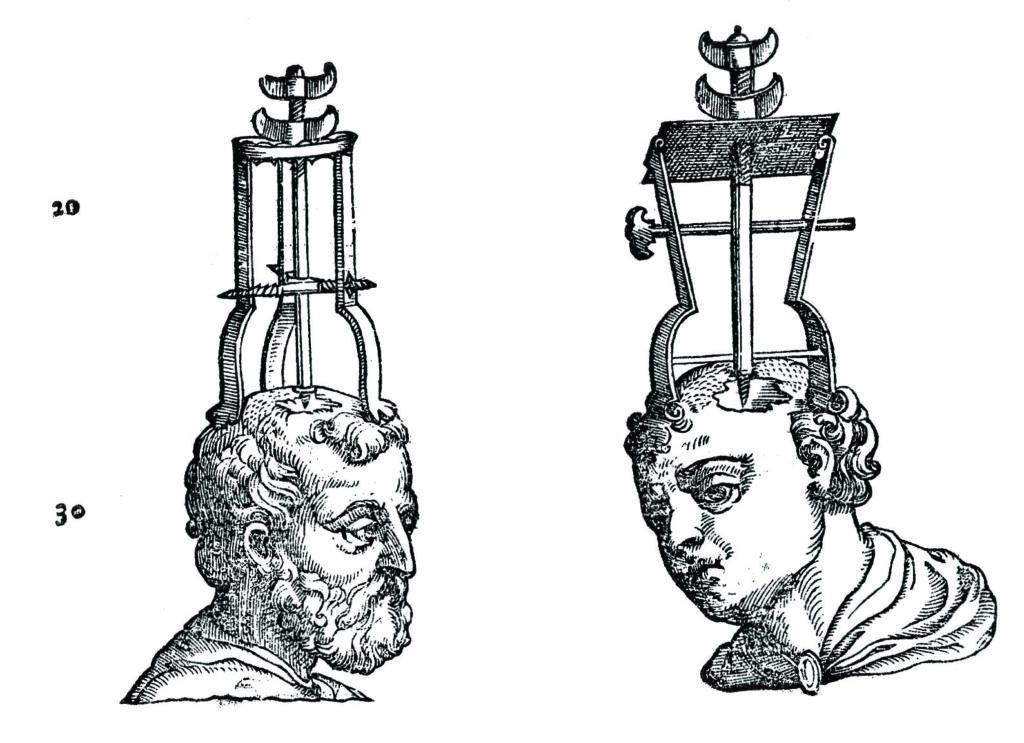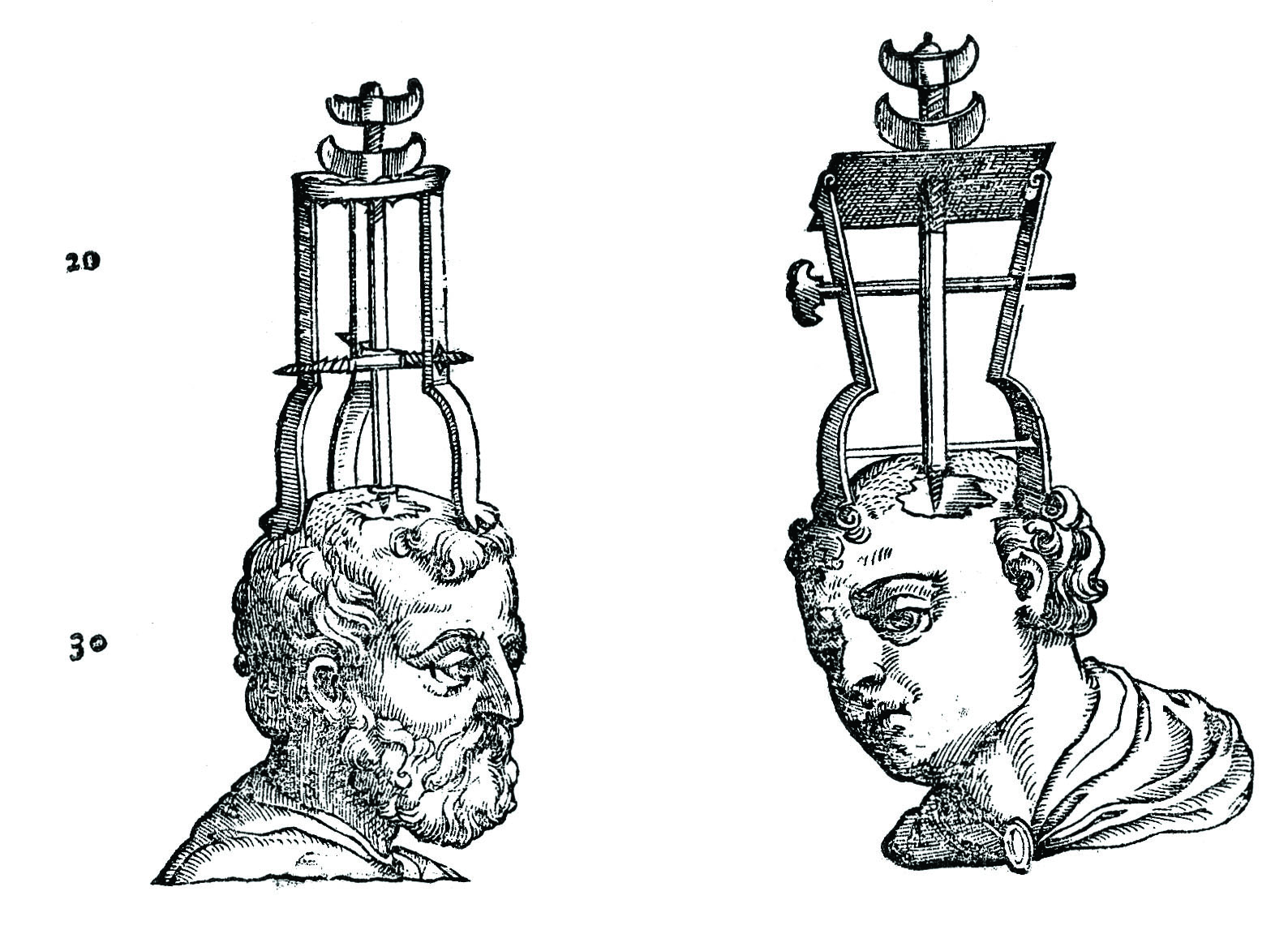
Headache: Trephining (pictured above) was used when someone was behaving abnormally. The hole created was supposed to release the evil spirit believed to be in their head.
Whenever there’s an outrageous party, a bizarre movie in theaters or some strange coincidence, this is the word people use to express their feelings.
This seemingly innocuous word is never censored on television and is used daily by people all the time. It is used for a multitude of reasons, from describing one’s hectic class schedule to bragging about the number of tequila shots they took the other night.
The term “crazy” originated in the late 16th century and was defined as “diseased or sickly.” Soon, “crazy” was associated with those who had mental illnesses and the word became a slur for them as if the treatment of the mentally ill wasn’t bad enough throughout history.
Crude attempts to “treat” mental illness date back to as early as 5000 B.C. People back then believed that mental illness was the result of supernatural phenomena, including but not limited to demonic possession. In one of the treatments, called “trephining,” a hole was chipped into the skull using primitive stone instruments so that evil spirits could leave the body.
Many other methods were used to “heal” the mentally ill, such as exorcisms, incantations, prayer atonement, threats, bribery or punishment.
The treatment of mentally ill women was often worse than it was for men. The cause of “hysteria” in women was often attributed to a “wandering uterus.”
In order to lure the uterus back to its original position, healers in Ancient Greece and Egypt utilized vaginal fumigation, where water mixed with herbs was boiled in a vessel with a long tube protruding from it, and the steam was pumped into the vagina to cure their “craziness.”
Though the treatment of the mentally ill isn’t as bad in the 21st century as it has been in years past, sentiments from those eras are echoed in the use of the word crazy to describe other people, especially women.
Let’s face it: Women are called crazy far more often than men.
The word today is typically reserved for women’s behavior, usually when they’re upset about something men don’t want them to be upset about. It’s used to describe ex-girlfriends everywhere, regardless of whether they were mentally ill. It’s used to describe female romantic partners when they are being “irrational,” “wrong” or “insane.”
It’s used to describe Taylor Swift every time she releases a new album.
The truth is, the word crazy really hurts.
Like being called “stupid,” it’s basically implying that the receiver of the insult is a flawed individual. However, one can fix “stupid” by educating his or herself on whatever it is they don’t know about. There’s nothing that can be done to fix “craziness.” Except maybe a lobotomy, which is about as old-fashioned as the use of the word crazy as a real descriptor for the mentally ill.
I’m not saying that my experience with the word or any other experiences should prevent anyone from using the word. I’m just hoping that maybe people will think twice about using it to describe people that are emotional.



